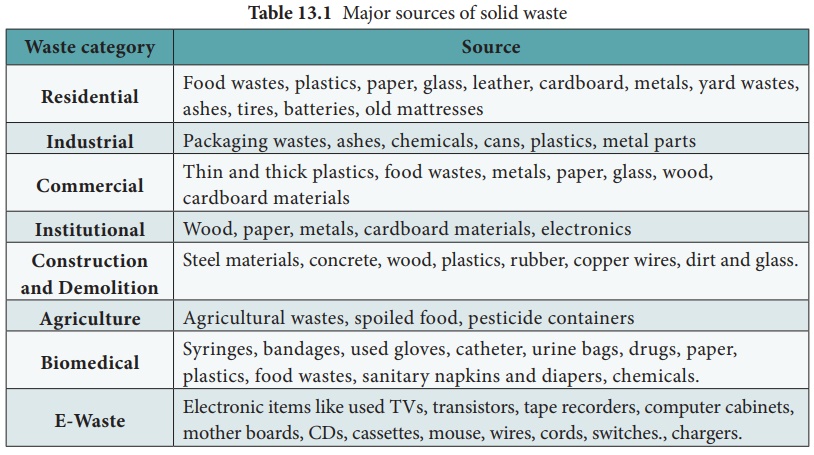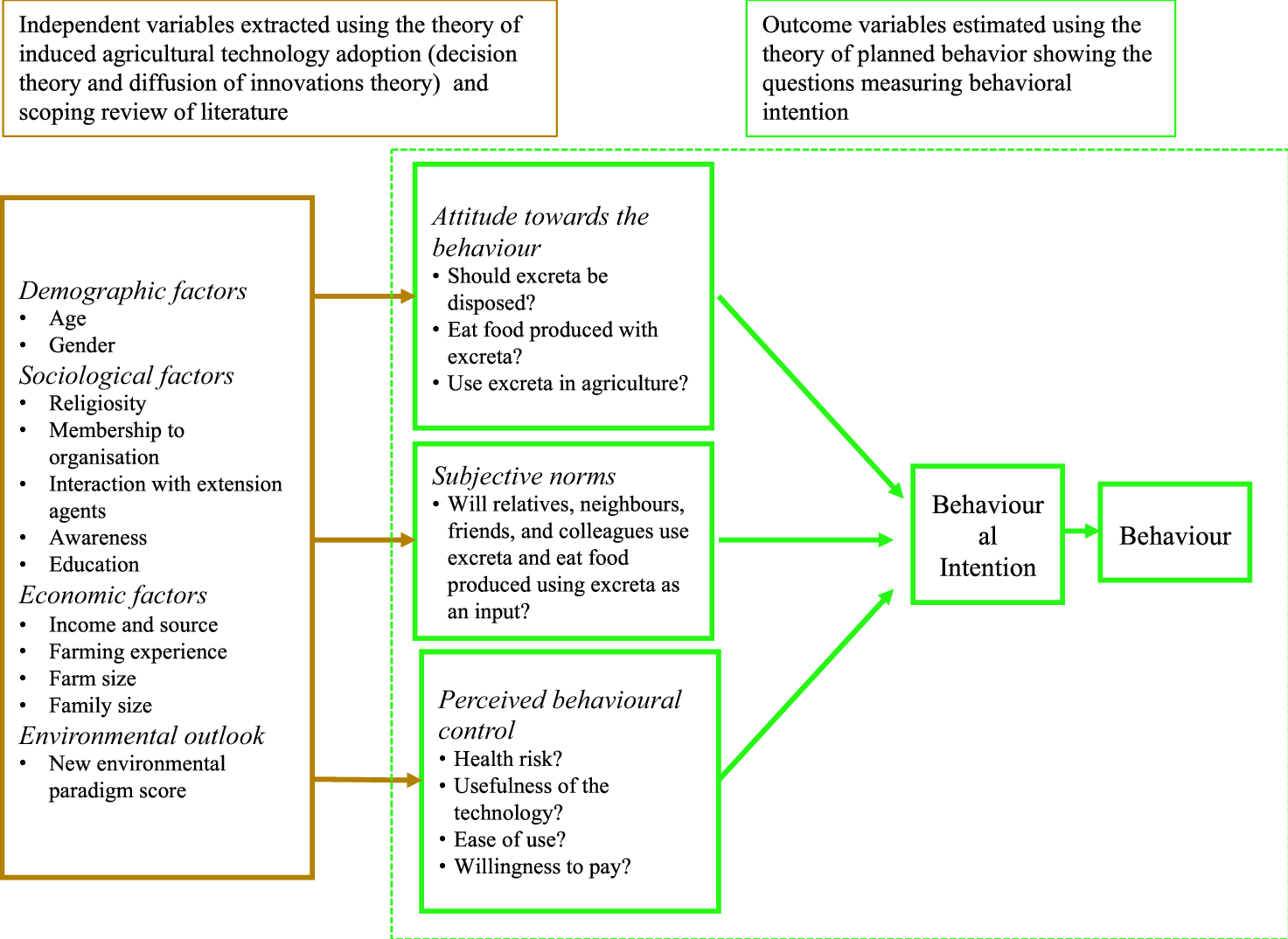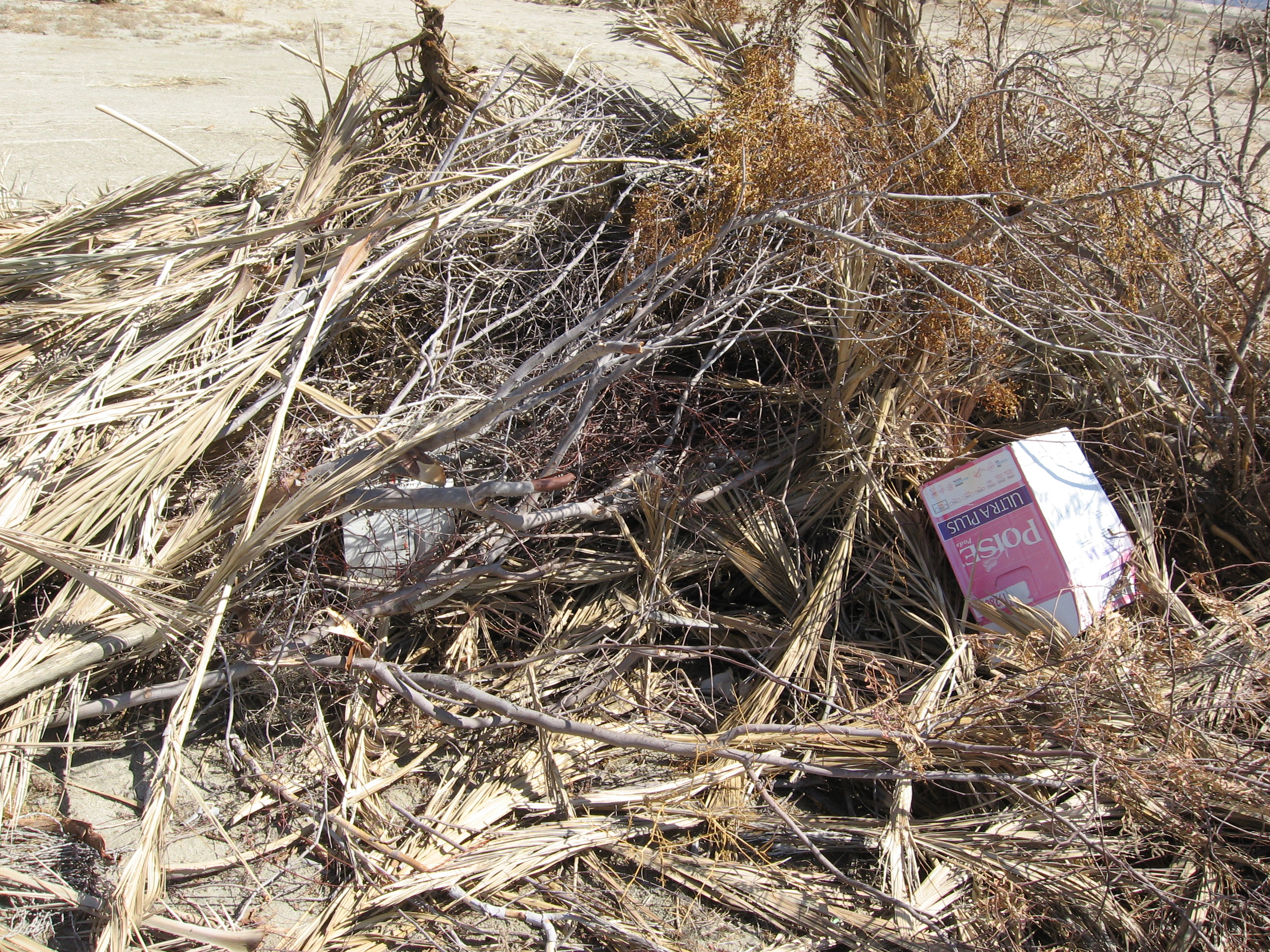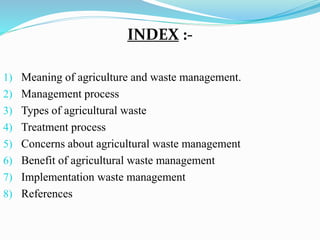Agriculture is the backbone of India's economy, contributing significantly to the country's GDP and providing employment to a large portion of the population. However, the agricultural sector also generates a significant amount of waste, which if not properly managed, can have negative impacts on the environment and human health.
There are several types of agricultural waste generated in India, including crop residue, livestock manure, and plastic waste.
Crop residue refers to the parts of a plant that remain after the harvest of the valuable portion. This includes stalks, leaves, and roots. In India, crop residue is often left to decompose in fields or burnt, releasing harmful gases into the atmosphere. This practice not only contributes to air pollution but also depletes the soil of its nutrients.
Livestock manure is another significant source of agricultural waste in India. Manure is generated by animals such as cows, goats, and poultry and is often left to decompose in fields or discarded in open areas. If not properly managed, livestock manure can leach into water bodies, contaminating them and posing a risk to human health.
Plastic waste is also a major issue in the agricultural sector in India. Farmers often use plastic bags to store and transport agricultural products, which can end up littering the fields and waterways. Plastic waste can take hundreds of years to decompose and poses a threat to wildlife and the environment.
In conclusion, agricultural waste is a significant issue in India that needs to be properly managed to protect the environment and human health. By adopting sustainable waste management practices and reducing the use of plastic, we can ensure that the agricultural sector in India is both productive and environmentally friendly.







